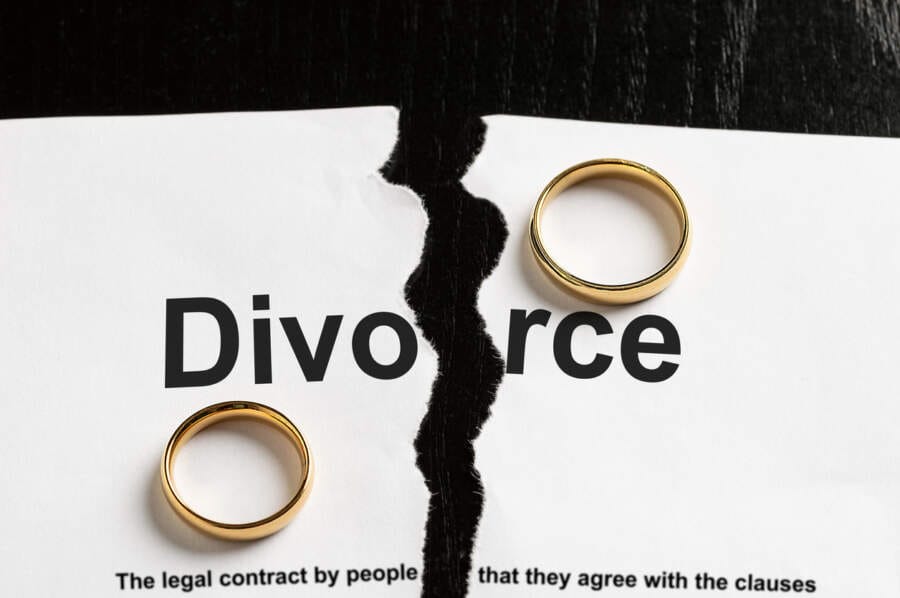
In the first week following the introduction of the ‘no-fault’ divorce law, 3,000 applications were received, according to data from the HM Courts and Tribunals Service, marking a dramatic increase of 50% when compared to the average in 2021.
While The Divorce, Dissolution and Separation Act 2020 seeks to end the blame game, there continues to be a lot of confusion and misunderstanding when it comes to the process of divorce.
Layla Babadi, legal director and family law solicitor at Nelsons, said: “While, for many, a marriage or civil partnership is a celebration of love and union, it’s important to remember that it’s also a legally binding contract between two people.
“We are regularly asked the same questions by our clients, the responses to which can often surprise them, so it’s crucial to ensure you’re equipped with all of the knowledge if you’re looking to separate from your partner.”
If I break up with my partner, do I have to return the engagement ring?
“If you break off an engagement, or bring your marriage to an end, you may feel a moral obligation to return the ring to your partner. However, the law states that ‘the gift of an engagement ring shall be presumed to be an absolute gift’. The only way this could be challenged is by proving the ring was given under the condition that it should be returned.”
Is a pre-nuptial agreement legally binding?
“While pre-nuptial agreements are definitely worth having to protect marital assets, they are not strictly legally binding in the UK, particularly if the marriage is long-term and when there are children or dependents involved.
“Despite not being entrenched in law, pre-nuptial agreements are increasingly being relied on and upheld in divorce if the circumstances are right. This is due to the fact that having one in place can reduce acrimony and increase certainty following the breakdown of a marriage.”
Is there always a 50/50 split of assets in a divorce?
“Courts in the UK will always start with the basis of a 50/50 split of assets. However, this is not always applied in every case as there are several factors that can mean the court will deviate if it is fair and reasonable to do so, such as:
- The length of the marriage or civil partnership;
- Children from the marriage or civil partnership;
- Benefits accrued e.g. pensions;
- If one person in the relationship stopped working to support the other person; or,
- If large amounts of money have been inherited of generated following the separation.”
Is there such a thing as a ‘quickie divorce’?
“Unsurprisingly, the most frequently asked question we receive is ‘how long will my divorce take?’. However, there is no hard and fast answer as it will always depend on a host of factors, from how busy the courts are through to how complex your financial matters are.
“As a starting point, we often advise clients to expect a divorce to take an absolute minimum of six to 12 months.”
Do I need a solicitor?
“While there is no legal requirement for you to appoint a solicitor for your divorce,it is strongly advised. People who attempt to conduct their own divorces are often not aware of the issues it could present in future.
“While you may think that your relationship is totally severed, there are legal loopholes that could cause problems further down the line that would easily be identified by a legal professional. Therefore, in order to guarantee peace of mind, it’s best to approach an experiences team to ensure that your current and future finances are protected.”
For more information on divorce and separation, please visit www.nelsonslaw.co.uk/divorce-and-separation.


